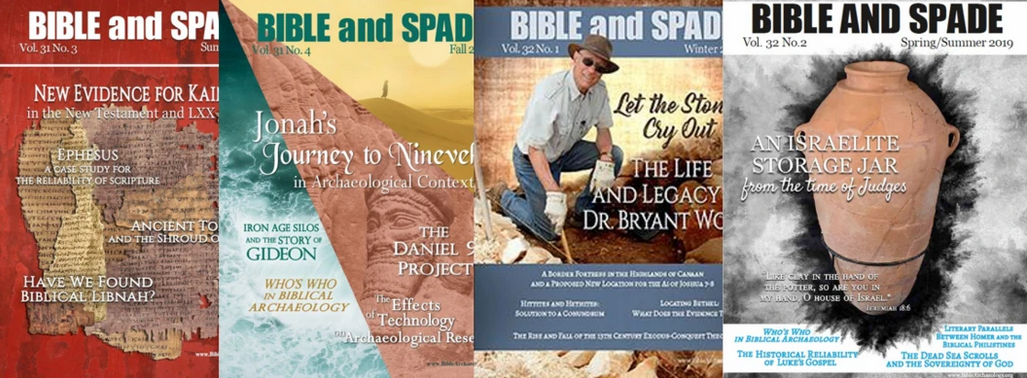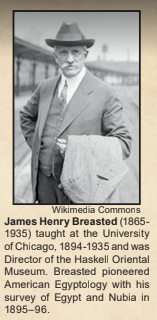
Familiarity with the name of this consummate historian may go back, as it does for me, to reference use of his high school/college textbook, Ancient Times, first published in 1916 and revised and enlarged just a year prior to his death. Earlier, in 1906, Breasted had published a five-volume work, Ancient Records of Egypt. Even that was preceded by his definitive History of Egypt.
James Breasted was not without recognition from his peers. He was elected president of such learned societies as the American Oriental Society (1918), the History of Science Society (1926), and the American Historical Association (1928). Not only as a translator and historian in his own right, but as a major promoter of ancient oriental research by others, he did more than any scholar of his time to inform Americans and the English-speaking world in general of a valuable cultural heritage from those “ancient times” of which he wrote. It was he, for example, who coined and popularized the term “Fertile Crescent” for the arable belt which arches from the Persian Gulf to the Red Sea, and on down the Egyptian Nile valley.
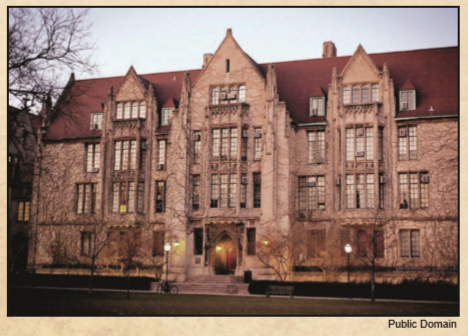
Born of Anglo-Dutch stock in northern Illinois, Breasted, destined to become “America’s greatest Orientalist and the greatest organizer of archaeological research whom the world has yet known” (says Albright, in the BASOR tribute mentioned above), studied for the ministry at Chicago Theological Seminary. A special interest in Hebrew and Semitics developed there, which led him to major under William R. Harper in graduate study at Yale. His doctorate in Egyptology was completed in Berlin, under the famous Erman. His thesis was written in Latin, on Akhenaton’s Hymn to the Sun.
From receipt of his PhD degree in 1894 till his death in 1935, his life’s work was centered at the University of Chicago, where he rose to the rank of Distinguished Service Professor and Director of the Oriental Institute. He became the first American in his field to be acknowledged by leading scholars in Europe to be their equal. So accurate and thorough was his first major publication, History of Egypt, that it became a standard and soon appeared in German, French, Russian and Arabic translations.
After founding the productive Oriental Institute at the University of Chicago in 1919, the pace of Breasted’s personal scholarly career was slowed. Yet he continued to do some survey writing, such as The Dawn of Conscience (1933). His lucid literary style, combined with his originality and broad perspective, gave all his books a wide circulation, despite their rather specialized subject matter.
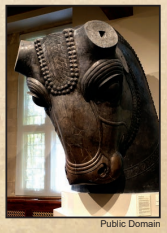
Under Breasted’s energetic management, the Oriental Institute conducted successful excavations in Egypt (Luxor, Thebes, Memphis, etc.), in Iran (Persepolis, where artwork, architecture, and 30,000 inscribed tablets were unearthed) and Iraq, northern Syria and, far from least, the ten-year exploration of Megiddo. Considering the esoteric nature of his field, it is gratifying that this Orientalist—linguist, historian and literary genius that he was— received not only numerous academic honors in American, British and European societies and academies, but also a membership in the National Academy of Sciences.
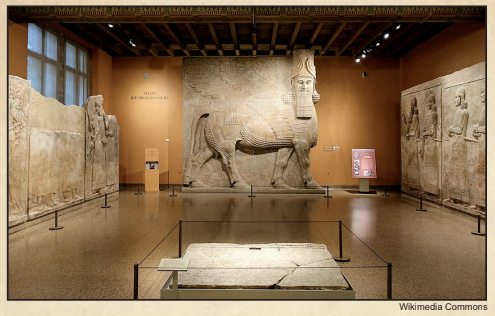
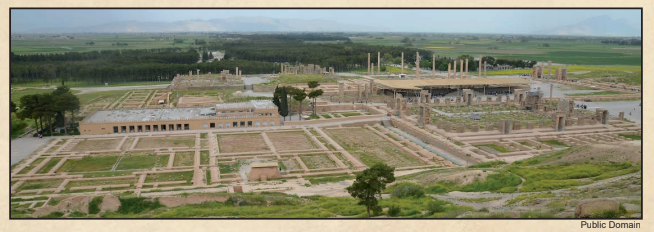
This article was originally published in Fall 2019 issue of Bible and Spade mazagine.
Click here if you interested in purchasing a subscription to Bible and Spade; our quarterly publication, focusing on biblical archaeology and apologetics.
Back issues of the magazine can be purchased on the ABR online bookstore.








